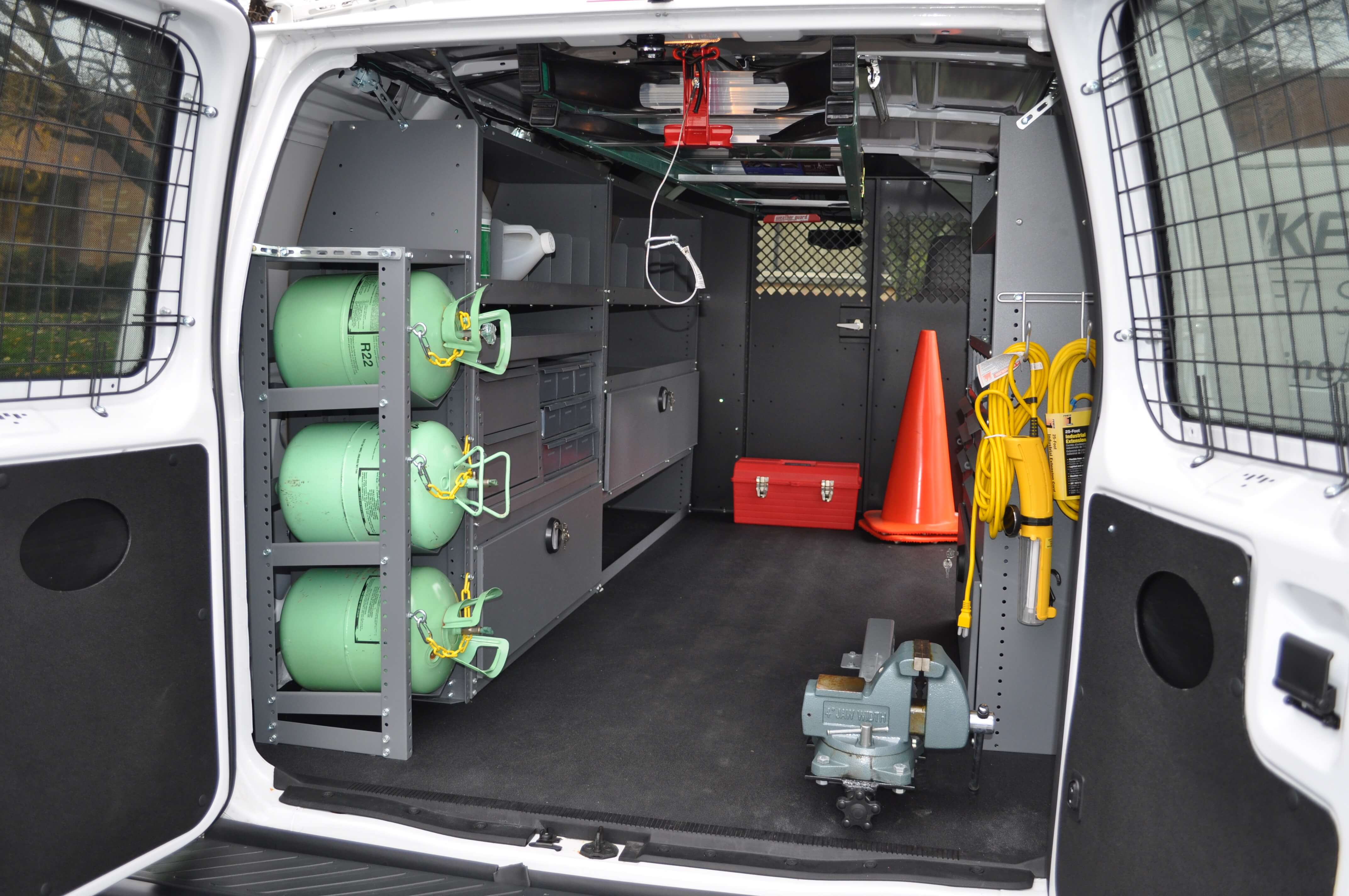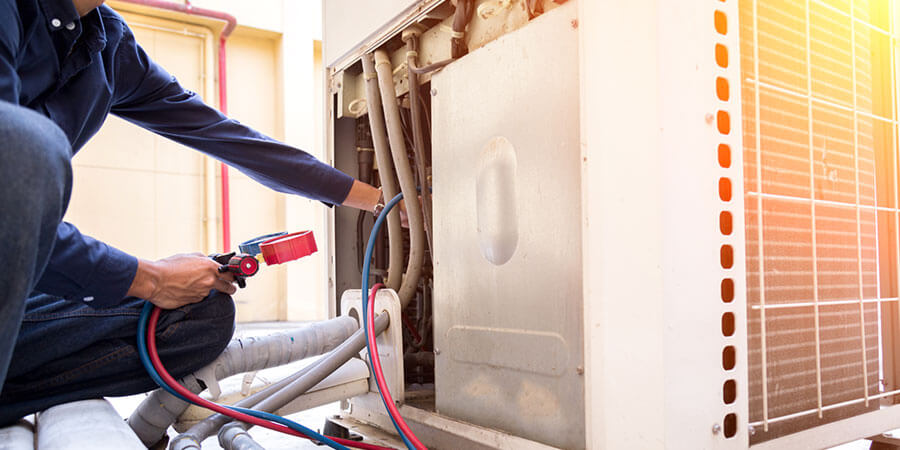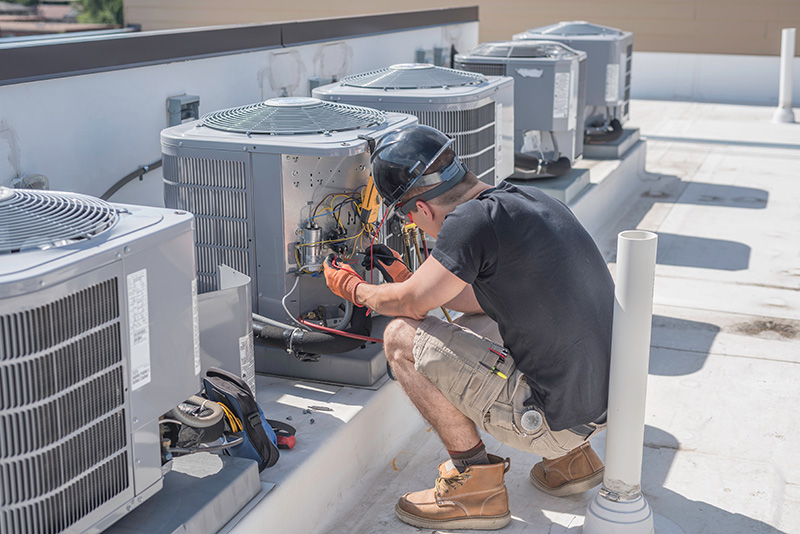How to Select the Right A/c System for Your Requirements
Choosing the appropriate HVAC system is a critical choice that calls for mindful consideration of different elements. Begin by assessing your home's size, format, and special demands, as these elements dictate the essential capability and configuration of the system. Additionally, developing a budget plan that encompasses installation and long-term functional costs is crucial. As you consider your choices, recognizing energy efficiency ratings and the implications of your regional climate will certainly play a significant duty in your choice. The myriad of system types readily available can complicate this process, leading one to ask yourself which path inevitably leads to optimal convenience and effectiveness.
Assess Your Home Dimension
Evaluating your home dimension is an essential initial step in selecting the suitable cooling and heating system. The size of your home directly influences the home heating and air conditioning capacity needed for efficient environment control. A HVAC system that is too little will certainly struggle to preserve comfortable temperature levels, bring about increased energy consumption and wear on the system. Conversely, a large system can lead to brief biking, insufficient moisture control, and ineffective procedure.
To accurately assess your home dimension, gauge the square video of each space, thinking about variables such as ceiling elevation and the format. Furthermore, think about the insulation high quality and the number of home windows, as these aspects impact thermal performance. Homes with open flooring strategies may require various system arrangements compared to those with several separated areas.
Using the Guidebook J tons calculation approach can supply an extra specific quote of your heating and cooling needs. This approach represent various variables, including regional climate, solar gain, and tenancy patterns. By very carefully evaluating these facets, you can make sure that your picked a/c system is suitably sized, causing enhanced convenience, energy performance, and durability of the tools.
Determine Your Budget Plan
Establishing your budget is a crucial step in the cooling and heating system choice procedure, as it sets the criteria for your options - DMAKS HVAC. A HVAC system is a substantial investment, and recognizing your financial limitations will assist limit choices that fit within your means
Begin by assessing not just the first purchase cost however also setup prices, which can vary substantially relying on the complexity of the job. Take into consideration ongoing expenses such as maintenance, repair work, and power intake. A system might show up cost effective initially but can result in higher costs in time if it is less reliable.
It is suggested to assign a backup fund for unexpected expenses that may occur throughout setup or preliminary system changes (DMAKS HVAC). In addition, check out funding alternatives or discounts that might be readily available, as these can reduce the worry of upfront costs
Inevitably, having a clear budget plan allows you to involve with a/c professionals better, ensuring you receive customized guidance that aligns with your monetary goals and home requirements. By being diligent regarding your spending plan, you can make enlightened decisions that improve comfort without jeopardizing financial security.
Evaluate Power Effectiveness
Energy performance plays an important duty in the general efficiency and cost-effectiveness of your heating and cooling system. When picking a system, it is necessary to consider its power performance scores, as these numbers directly affect your energy bills and environmental impact. Look for systems with a high Seasonal Power Efficiency Proportion (SEER) for cooling down and a high Annual Fuel Use Efficiency (AFUE) rating for home heating. Higher rankings show greater effectiveness, suggesting more comfort for less power consumption.
Additionally, think about the Energy Celebrity qualification, which indicates that the system meets rigid performance standards set by the Environmental Defense Firm. Buying an Energy Star-rated HVAC find this system can result in considerable cost savings in time, particularly in areas with extreme temperature fluctuations.
Another factor to evaluate is the system's dimension and ability. A large or undersized system can result in inefficiency and increased energy prices. DMAKS HVAC. Correct sizing, usually identified with a Manual J load calculation, makes certain that the system runs at ideal effectiveness


Think About Environment and Atmosphere
When picking a cooling and heating system, it is crucial to consider the local environment and ecological problems, as these aspects dramatically affect the system's efficiency and performance. Various areas experience varying temperature level extremes, moisture degrees, and seasonal adjustments, every one of which effect link heating and cooling demands.

Additionally, neighborhood environmental aspects, such as air quality and prospective irritants, should notify your selection. Systems furnished with sophisticated purification technologies can assist minimize pollutants and offer cleaner air. In addition, consider the energy sources available in your location-- some cooling and heating systems are much more effective when powered by gas or renewable energy sources.
Eventually, straightening your cooling and heating system selection with your regional environment and ecological factors to consider will lead to enhanced comfort, enhanced effectiveness, and lower energy costs.
Explore System Types and Functions
As home owners look for to maximize convenience and performance, discovering the numerous kinds of cooling and heating systems and their one-of-a-kind attributes becomes important. The primary sorts of HVAC systems include central air, heatpump, ductless mini-split systems, and heating systems. Each system uses unique advantages tailored to different needs and choices.
Air conditioning systems give consistent cooling throughout a home, making them perfect for larger spaces. Warmth pumps work as both home heating and cooling services, utilizing electricity to transfer heat, which can result in reduced power costs. Ductless mini-split systems are becoming significantly preferred because of their versatility and ease of home installment, enabling home owners to manage the temperature in specific areas without substantial ductwork.

Conclusion
Finally, choosing the ideal HVAC system necessitates careful consideration of various elements, including home size, budget plan restrictions, energy effectiveness, local environment, and available system kinds. A comprehensive assessment of these elements guarantees optimal comfort and cost-effectiveness. By adhering to an organized strategy, home owners can make enlightened choices that line up with their particular requirements and preferences, ultimately leading to enhanced indoor air top quality and power financial savings.
Comments on “Keep Your HVAC System Running Smoothly with Help from DMAKS HVAC.”